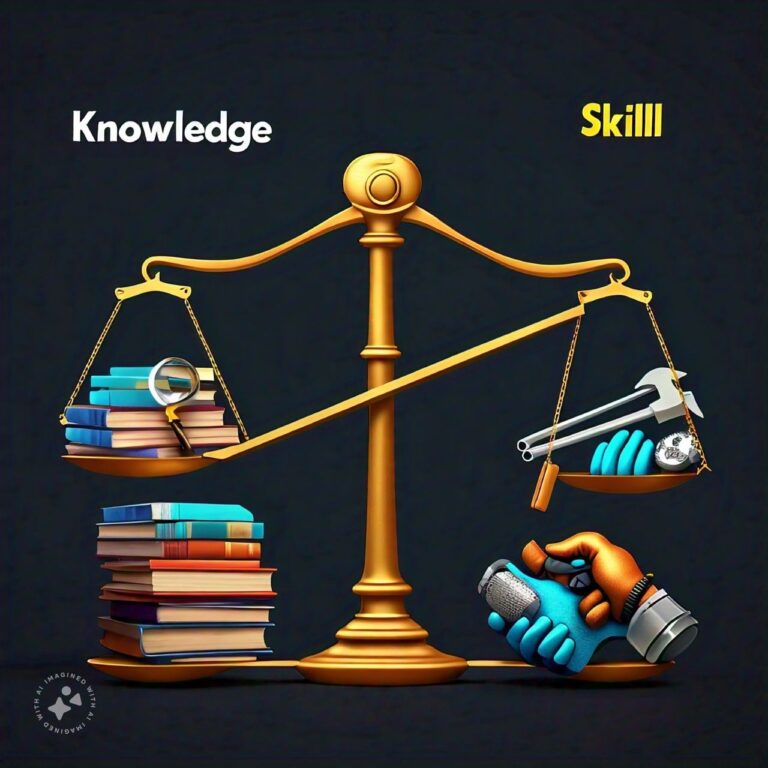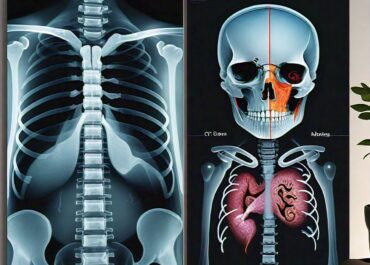
Differences Between Knowledge and Skill
Knowledge and skill are two essential components of learning and personal development, yet they are distinct concepts. Knowledge refers to the theoretical understanding of a subject, the facts, information, and concepts that a person acquires through study or experience. Skill, on the other hand, is the practical application of knowledge—it involves the ability to perform tasks effectively and efficiently, often gained through practice and experience. Both knowledge and skill are crucial for success in life and career, but they operate differently and are developed through different processes.
While knowledge is about understanding what to do, skill is about knowing how to do it. For instance, a person may have knowledge of the principles of engineering but may lack the skills required to design and build structures. Similarly, a skilled chef might know how to prepare complex dishes but may not fully understand the science behind why certain ingredients interact the way they do. Mastering both knowledge and skill is essential for achieving expertise and excelling in any field.
Knowledge Overview
Knowledge encompasses the facts, information, and understanding that a person acquires through education, experience, or observation. It forms the foundation of decision-making and problem-solving, allowing individuals to grasp the principles and concepts that underlie a subject.
1. Types of Knowledge
Knowledge can be divided into several categories, including factual knowledge, conceptual knowledge, procedural knowledge, and metacognitive knowledge.
- Factual Knowledge: This includes basic facts and information about the world, such as dates, definitions, and statistics. It is often the foundation of deeper understanding.
- Conceptual Knowledge: Refers to the understanding of how facts and concepts are related to one another. It involves recognizing patterns and relationships.
- Procedural Knowledge: The knowledge of how to perform tasks and processes. It is the "know-how" that comes from following steps or procedures.
- Metacognitive Knowledge: Involves awareness of one's own thought processes. It includes understanding how you learn and think, which can help improve learning and problem-solving abilities.
2. Sources of Knowledge
Knowledge is acquired from a variety of sources, including formal education, personal experiences, and observation. These sources shape how individuals perceive the world and solve problems.
- Formal Education: Schools, universities, and training programs provide structured learning environments where knowledge is systematically imparted.
- Personal Experience: Everyday experiences, including interactions with people, situations, and the environment, contribute to an individual’s knowledge base.
- Books and Media: Books, documentaries, and digital media are traditional sources of knowledge, offering both depth and breadth on various subjects.
3. Importance of Knowledge
Knowledge is critical for understanding complex systems, making informed decisions, and advancing society. It is the cornerstone of innovation, scientific discovery, and progress.
- Decision-Making: Having knowledge allows individuals to make informed decisions in both personal and professional contexts. It provides the foundation for assessing options and choosing the best course of action.
- Innovation: Knowledge is the seed of innovation. Understanding principles and theories in various fields enables individuals to create new technologies, processes, and solutions.
4. Knowledge and Learning
Learning is the process through which knowledge is acquired. It can occur formally, such as through education, or informally, through experience and self-directed study.
- Formal Learning: Structured learning that occurs in schools and educational institutions, where knowledge is systematically taught and tested.
- Informal Learning: Learning that happens outside of formal educational settings, often through experiences, interactions, and self-study.
5. Challenges in Acquiring Knowledge
Acquiring knowledge is a lifelong process that can be challenging. Individuals may face barriers such as limited access to education, information overload, or difficulty understanding complex concepts.
- Access to Education: In many parts of the world, access to formal education is limited, which restricts opportunities to gain knowledge.
- Information Overload: In today’s digital age, the abundance of available information can be overwhelming, making it difficult to discern accurate and relevant knowledge.
Skill Overview
Skill is the ability to perform tasks effectively and efficiently. It is the practical application of knowledge, requiring practice and repetition to develop proficiency. Unlike knowledge, which is theoretical, skills are action-oriented and focus on doing rather than knowing.
1. Types of Skills
Skills can be divided into two main categories: hard skills and soft skills.
- Hard Skills: These are specific, teachable abilities that can be measured and defined, such as coding, typing, or accounting. Hard skills are often acquired through formal education or training.
- Soft Skills: These are interpersonal skills and personal attributes, such as communication, leadership, and problem-solving, that enable individuals to work effectively with others. Soft skills are often developed through experience.
2. Developing Skills
Skills are developed through practice and experience. Unlike knowledge, which can be learned through study, skills require hands-on experience and often involve learning from trial and error.
- Practice: Regular practice is key to developing skills. Whether learning to play an instrument, speak a new language, or program a computer, repetition is essential for mastery.
- Feedback: Constructive feedback helps individuals improve their skills by identifying areas of strength and weakness.
3. The Role of Skill in the Workplace
In the workplace, skills are essential for performing tasks efficiently and contributing to organizational goals. Employers seek candidates with the right balance of hard and soft skills, as both are critical to success in professional environments.
- Technical Skills: Many jobs require specialized technical skills, such as engineering, medical procedures, or software development.
- Interpersonal Skills: Collaboration, teamwork, and leadership are vital skills in the workplace that enhance productivity and foster positive work environments.
4. Skill Mastery and Expertise
Skill mastery refers to the highest level of proficiency in a particular skill. It is often the result of years of practice and dedication. Experts in their fields have not only acquired the necessary knowledge but have also honed their skills through practical application.
- Time and Dedication: Becoming an expert requires continuous effort and improvement over time. Experts invest countless hours in refining their skills.
- Mentorship: Working with mentors or professionals in the field can help individuals develop their skills faster by providing guidance and insights.
5. Challenges in Developing Skills
Developing skills can be difficult and requires patience, perseverance, and resilience. Individuals may encounter obstacles such as lack of resources, limited practice opportunities, or fear of failure.
- Lack of Opportunities: Some individuals may have limited access to training, mentorship, or practice opportunities, making skill development more difficult.
- Fear of Failure: The process of acquiring skills often involves failure, which can be discouraging. Overcoming the fear of failure is key to continued growth and improvement.
Differences Between Knowledge and Skill
- Nature
- Knowledge: Theoretical understanding of concepts, facts, and information.
- Skill: Practical ability to perform tasks based on experience and practice.
- Acquisition
- Knowledge: Acquired through study, reading, and observation.
- Skill: Acquired through practice, repetition, and hands-on experience.
- Measurement
- Knowledge: Can be tested through exams, quizzes, or verbal demonstrations.
- Skill: Measured through performance and the ability to complete tasks effectively.
- Application
- Knowledge: Understanding "what" to do.
- Skill: Knowing "how" to do it and executing it.
- Time to Develop
- Knowledge: Can be acquired relatively quickly through focused study.
- Skill: Takes longer to develop, often requiring continuous practice and refinement.
- Dependency
- Knowledge: Does not necessarily require skills to exist (one can know something without being able to do it).
- Skill: Often requires knowledge as a foundation to develop effectively.
- Transferability
- Knowledge: More easily transferable through teaching and communication.
- Skill: Harder to transfer without hands-on experience and practice.
- Change Over Time
- Knowledge: Can become outdated as new information or technologies emerge.
- Skill: Practical skills may remain relevant longer but can still require updates as methods evolve.
- Learning Methods
- Knowledge: Learned through lectures, reading, research, and observation.
- Skill: Learned through doing, practicing, and receiving feedback.
- Retention
- Knowledge: Can fade over time if not used or reinforced.
- Skill: Skills tend to stay with individuals longer but may degrade without regular practice.
Conclusion
Knowledge and skill are distinct yet interconnected aspects of personal and professional development. While knowledge is the theoretical understanding of concepts, skill refers to the practical ability to apply that knowledge effectively. Both are essential for success in various areas of life, from academia to the workplace. Knowledge provides the foundation on which skills are built, while skills bring knowledge to life through action and experience.
In today's fast-paced world, possessing both in equal measure is crucial. Whether in technology, healthcare, education, or any other field, the combination of knowledge and skill leads to innovation, problem-solving, and mastery. The journey of learning is never complete, and it involves a balance between acquiring new knowledge and refining skills through practice.
FAQs
Related Topics
- All
- Animals
- Diseases
- Health
- Money
- Politics
© 2024 OnYelp.com. All rights reserved. Terms and Conditions | Contact Us | About us





